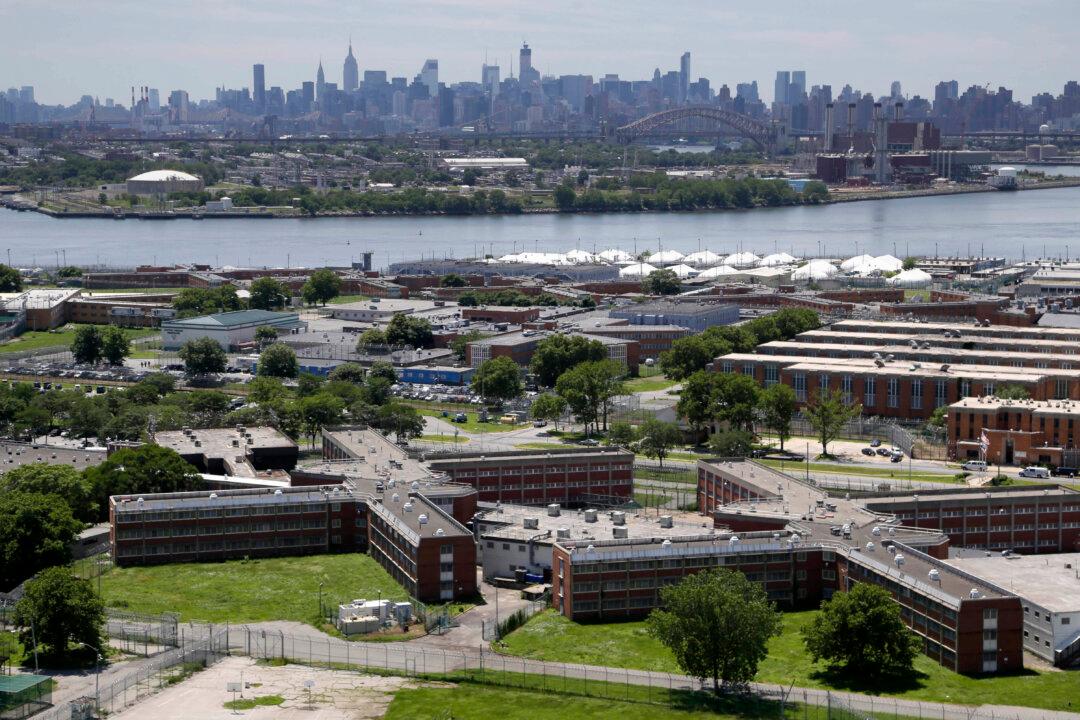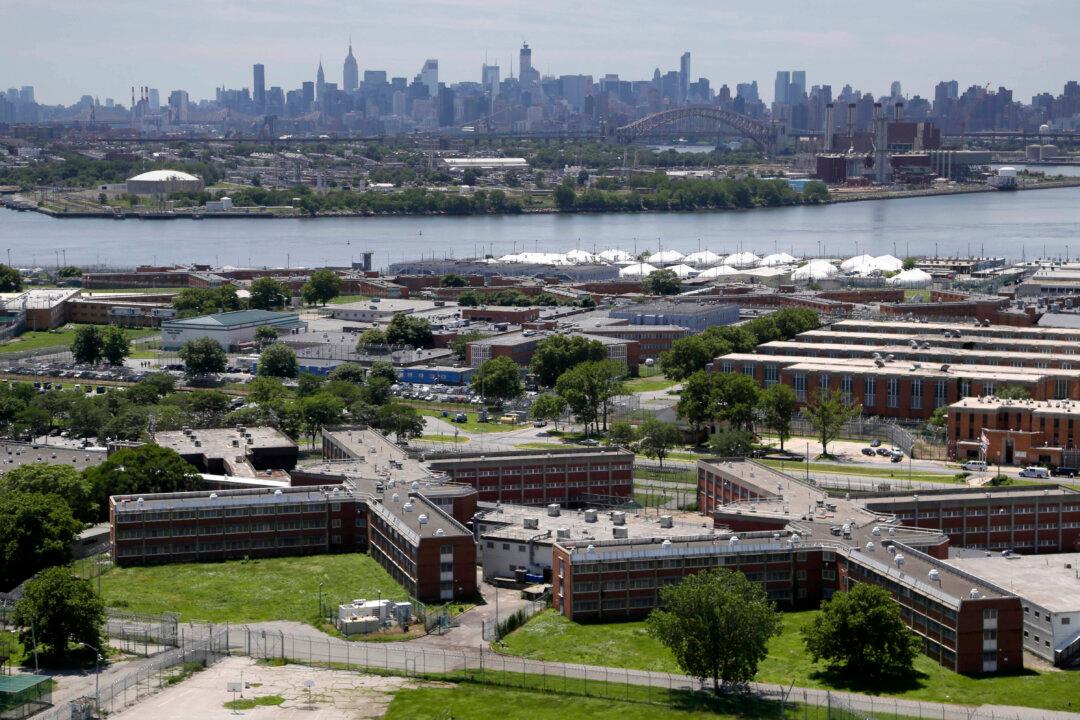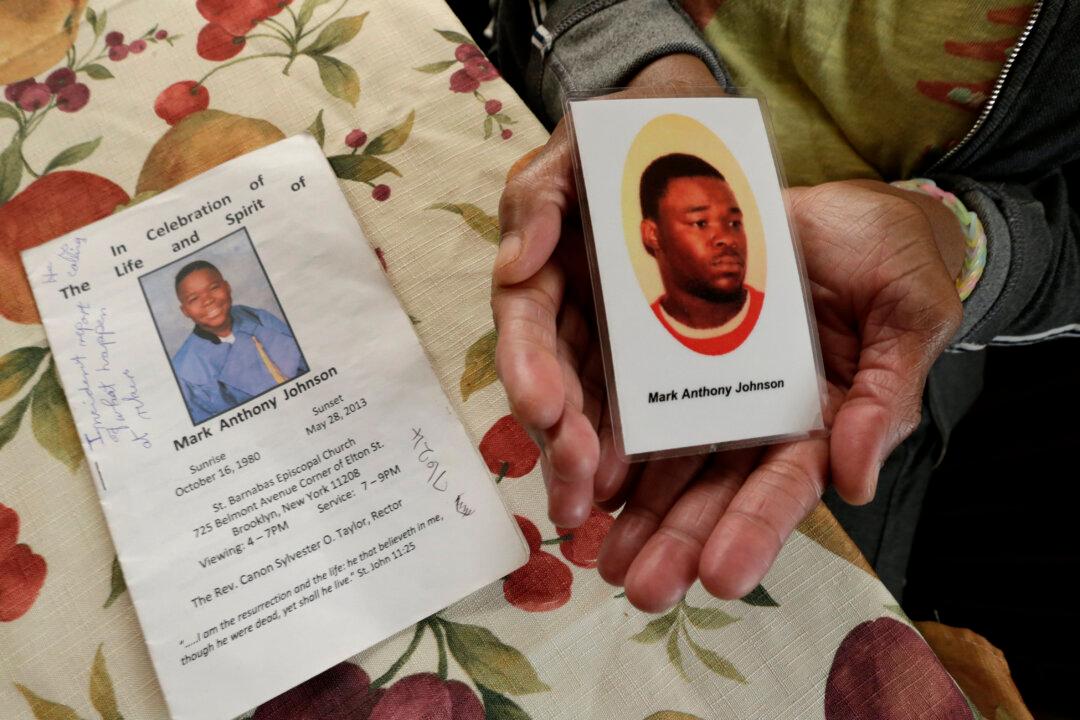NEW YORK—The New York City mayor wants to spend $130 million over four years to overhaul how the nation’s most populous city deals with mentally ill and drug-addicted suspects, diverting many to treatment instead of the city’s troubled Rikers Island jail complex.
Mayor Bill de Blasio’s plans, announced Tuesday, are based on the recommendations of a task force he appointed following a series of reports by The Associated Press detailing problems at Rikers, including the deaths of two inmates suffering from serious mental illness.
The reforms are aimed largely at inmates with mental health or substance abuse problems who repeatedly end up in jail on minor offenses because there is nowhere else for them to go.
The changes, which do not require city council approval, include offering stepped-up training for police to identify such suspects, using drop-off treatment centers for low-level offenders and allowing more leeway for judges to order supervised release and treatment instead of jail. They draw on reforms already tried in Seattle, Washington D.C., and Louisville, Ky.
“The jails hold up a mirror to the rest of the criminal-justice system,” the mayor’s task force report says, noting that “at every point, the criminal-justice system has become the default for addressing the problems presented by people with behavioral health issues, whether at arrest, arraignment, confinement, or in the neighborhood.”
On Tuesday, de Blasio—who has dubbed the jails “de facto mental health facilities”—said that while some jail reforms already implemented are beginning to show signs of progress, long-term changes will require more time to take root.
“This is going to be a long process by definition, because it was not years, it was decades in the making, that’s how broken our correction system was,” de Blasio told reporters.






